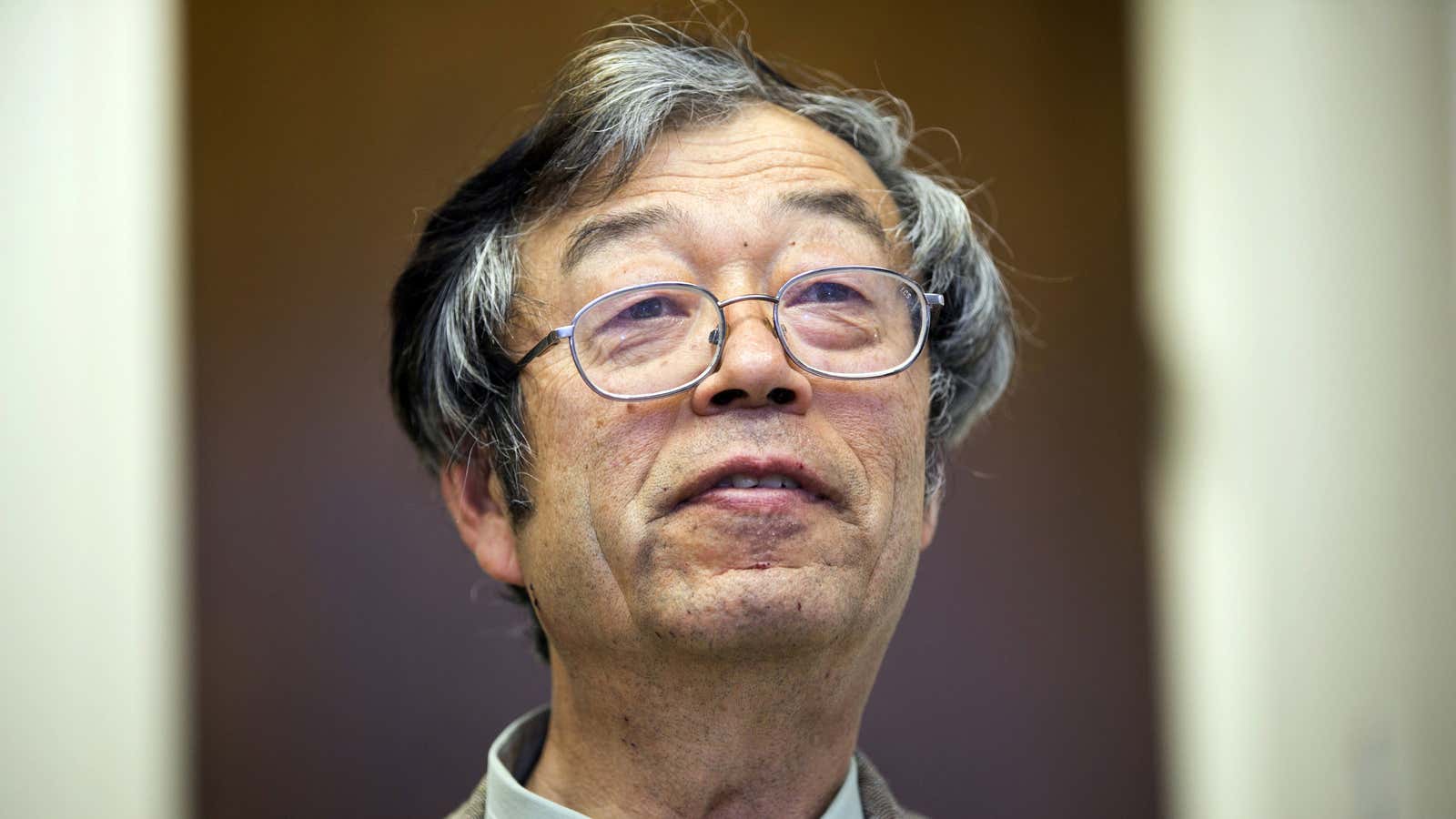Japan has become perhaps the world’s most important locale for bitcoin, the digital currency that was supposed to liberate its users from the tyranny of geography—and its government is playing catch-up.
This week the creator of bitcoin has been allegedly unmasked as a Japanese-born Dorian Satoshi Nakamoto, who was “descended from samurai and the son of a buddhist priest,” according to Newsweek. The media circus around Nakamoto, who has denied Newsweek’s claims, comes as the bitcoin world is still reeling from the failure of Tokyo-based Mt. Gox, which went from being the world’s biggest bitcoin exchange to an ignoble bankruptcy last week.
It was the failure of Mt. Gox that finally spurred prime minister Shinzo Abe’s government to issue its first major proclamation about bitcoin on March 7, and it’s fair to say that Japan’s stance is still a work in progress.
Chief cabinet secretary Yoshihide Suga told reporters that bitcoin would be treated as a commodity, not as a currency, and “as a matter of common sense” it would be “natural” for the government to tax bitcoin transactions. But the government also said it was still gathering information on bitcoin—including an attempt to determine the total volume and value of bitcoins in circulation. The total number of Japanese bitcoin owners is also not clear.
“We are now sorting things out under the current law and mulling what the government can do,” Suga added.
Japan’s financial institutions have also been grappling with how to deal with bitcoin. The Wall Street Journal reported that Mizuho Bank, which handled wire transfers and other business from Mt. Gox, repeatedly asked the exchange to shut down its account (paywall) because of an “unmanageable volume of money transfers,” many of them between Mt. Gox and its international customers.
The Japanese government issued a statement earlier this week that it does not prohibit financial firms from investing funds in bitcoin, but they are banned from exchanging between bitcoins and conventional currencies.
At least a few Japanese bitcoin owners are still optimistic despite the events of the last few weeks. Keiichi Hida of the Japan Digital Money Association, who lost¥100,000 ($980) when Mt. Gox failed, told Reuters, “We should make it a national project to have bitcoin used nationwide at the time of the 2020 Tokyo Olympics,” he said. “I think then everyone would come to Tokyo in an instant.”
